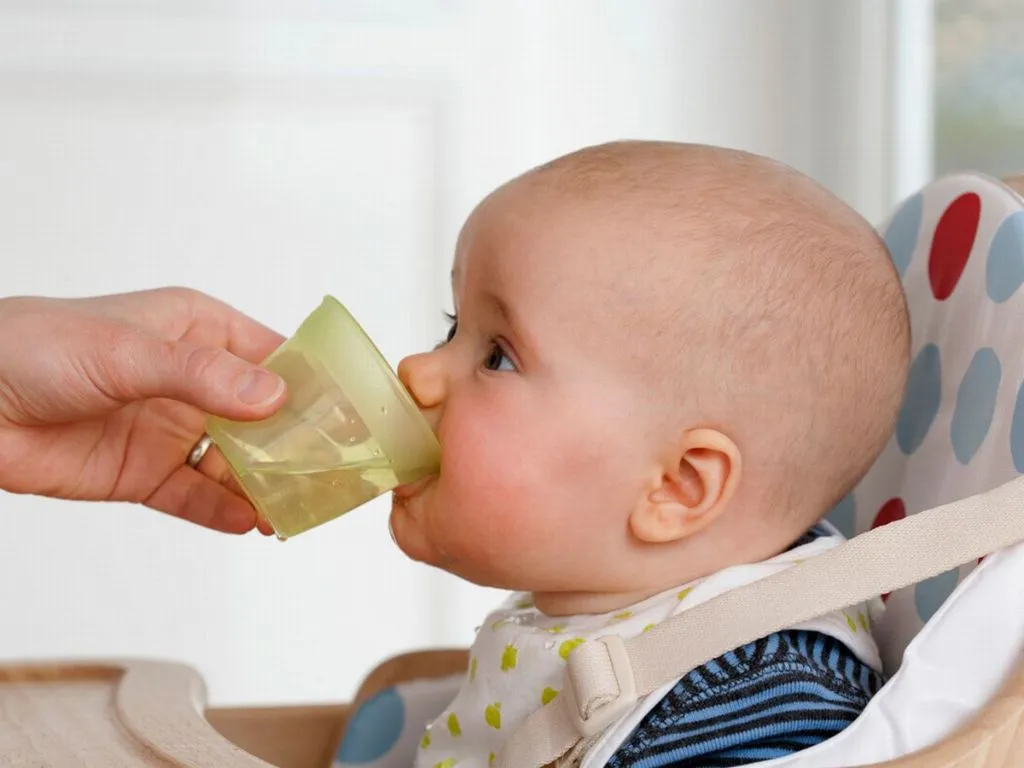
Introduction:
Water is essential for everyone, including babies, as it plays a crucial role in maintaining hydration and overall health. Knowing When Can Babies Drink Water and how much water to give to your little one is important for their well-being. Let’s delve into the details.
The Ideal Age for Babies to Start Drinking Water:
Babies usually get all the hydration they need from breast milk or formula during their first few months. However, around the age of 6 months, as they start to explore solid foods, it’s also an appropriate time to introduce small amounts of water. Pediatricians generally recommend waiting until this age to prevent interference with nutrient absorption from milk or formula.
Factors such as climate, activity level, and individual needs can influence the timing of introducing water to babies. It’s crucial to follow recommendations from healthcare providers to ensure proper hydration without compromising nutritional intake.
How Much Water Should Babies Drink?
Determining the appropriate amount of water for babies depends on various factors, including their age, weight, and overall health. As a general guideline, a few sips of water with meals or when they seem thirsty is sufficient for infants. For older babies, gradually increasing water intake alongside solid foods is recommended.
Pediatricians typically advise against giving too much water, as it can lead to water intoxication or dilution of essential nutrients. It’s essential to strike a balance and monitor your baby’s hydration needs closely.
Also Read : Parenting Hacks for Busy Moms: Simplify Your Life and Thrive
Risks of Overhydration in Babies:
Overhydration, or water intoxication, can occur when babies consume excessive amounts of water, leading to an imbalance of electrolytes in their bodies. Symptoms may include confusion, irritability, swelling, and in severe cases, seizures or coma. Preventive measures include monitoring water intake and being cautious not to exceed recommended amounts.
Tips for Introducing Water to Babies:
When introducing water to babies, it’s essential to do so gradually and at appropriate times. Offering a few spoonfuls of water during or after meals or when your baby seems thirsty is a good starting point. Using a small, clean cup or a sippy cup with a soft spout can make it easier for them to drink.
Signs That a Baby Needs More Water:
Understanding the signs of dehydration in babies is crucial for ensuring they stay properly hydrated. Symptoms may include decreased urine output, dry mouth, sunken eyes, lethargy, and fussiness. If you notice any signs of dehydration, consult your pediatrician promptly.
Conclusion:
Proper hydration is essential for the health and well-being of babies. Introducing water at the right time and in appropriate amounts, along with close monitoring of hydration needs, ensures that your little one stays healthy and happy.
Must Visit:
FAQs about Babies Drinking Water:
Giving water to newborns can interfere with their ability to absorb nutrients from breast milk or formula and increase the risk of water intoxication.
It’s generally recommended to wait until babies start eating solid foods before introducing water, usually around 6 months of age.
Signs of thirst in babies may include increased fussiness, smacking lips, or rooting for a breast or bottle.
It’s best to use boiled and cooled tap water or filtered water for babies to ensure safety and avoid exposure to contaminants.
Breast milk or formula provides adequate hydration for babies, but small amounts of water can be introduced alongside solid foods.


